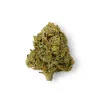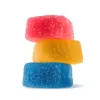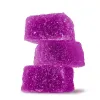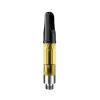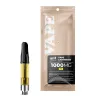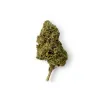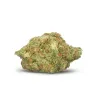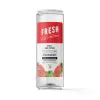Keeping up with the latest developments in hemp can be difficult with a growing cannabinoid market. The old-school classic buzz of delta 9, the soothing wonder of delta 8, and the speedy energy of delta 10 have already left you wanting more. But what’s next? Delta 11.
You may not be familiar with delta 11, which has been around since the 1970s, but has dropped off the radar for decades. Let's explore its effects, benefits, and how it compares to all your favorite cannabinoids!
What Is Delta 11?
Known as delta 11 THC, delta 11 tetrahydrocannabinol is a rare cannabinoid found only in trace amounts in cannabis plants. A paper on the social impacts of cannabis use first mentioned delta 11 in a scholarly manner in 1974. A 1990 animal study then investigated the metabolism of this rare cannabinoid. Since then, there have been no publications on the compound.
We have not heard much about delta 11 due to its pause in research, but it is believed to be nearly three times stronger than THC, the primary psychoactive ingredient in cannabis. In addition to this increased potency, anecdotal evidence also suggests that delta 11 also induces intense euphoria.
Delta 11 is reported as providing a euphoric effect that is unlike any other “delta” cannabinoid, according to user accounts. Apart from that, we have no further scientific evidence supporting any benefits of delta 11. Aside from the ones mentioned above that took place in the late 20th century, there have been no significant studies on this cannabinoid.
Overall, we know that delta 11:
- Provides powerful relaxation
- Has strong effects on the brain and body
- Elevates mood
- Relieves anxiety and stress
- Provides intense euphoria
- Has long-lasting effects

How Strong is Delta 11?
As previously mentioned, delta 11 is believed to be around three times stronger than delta 9. There is no evidence of psychedelic effects at any dose with delta 11.
Does Delta 11 Show Up on A Drug Test?
It's hard to say whether Delta 11 will trigger a drug test or not, as it hasn't been thoroughly researched. As a general rule, if the name of a cannabinoid contains the word THC, you're likely to fail a drug test.
An enzyme that metabolizes all THC-based cannabinoids, THC-COOH, is used to determine whether a person has used cannabis or not in a standard drug test. Furthermore, delta 11 is more potent than delta 9, so it also has a greater chance of failing a drug test.
How Long Does Delta 11 Stay in Your System?
There is no information on how long delta 11 stays in the human system. In animal trials conducted on the compound in the 1990s, “the ratio of metabolites varied considerably between the species.” Nevertheless, from common cannabis knowledge, we know that the compound lasts longer in the body the more it’s used, both in frequency and amount.
In other words, the body is more likely to retain delta 11 when used frequently and in higher amounts than when used rarely or infrequently and in lower doses.
How is Delta 11 Made?
By now, most cannabinoid enthusiasts are familiar with the process of making new compounds. As with similar cannabinoids, delta 8 and delta 10, delta 11 is a naturally occurring compound. However, like most other products available in recent years, delta 11 can only be found in tiny amounts in hemp plants. It cannot be extracted commercially.
Delta 11 is extremely rare in nature, but retailers can produce it in large quantities for mass marketing by using a process known as cannabinoid conversion. At first glance, delta 11 may appear synthetic, but chemists use natural cannabinoids, like CBD, and put them through an organic process — one that occurs naturally in hemp plants but can be replicated in the lab — to create the compound. Essentially, delta 11 is made similarly to how it is made in nature, except in a controlled laboratory environment where scientists can manipulate its conditions.
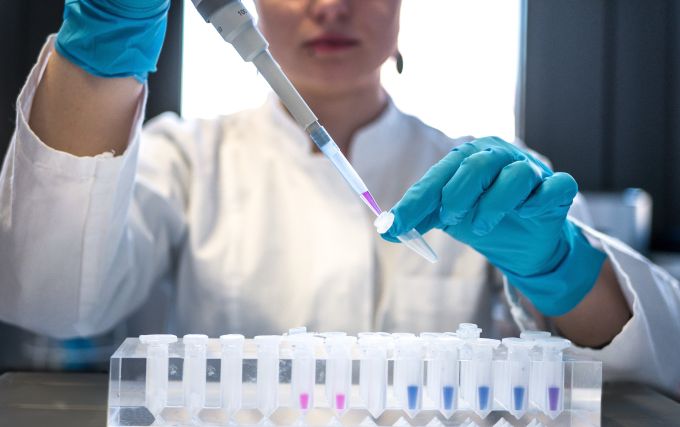
Is Delta 11 Safe?
In spite of the limited amount of research done on delta 11, it is generally considered safe because of its proximity to other cannabinoids such as delta 9. Delta 11 comes from hemp, one of the safest plants on the planet, making its theoretical safety profile favorable. No one has ever become ill, injured, or died from any hemp-derived product.
The compounds in cannabis do, however, have some adverse side effects, especially when consumed in large amounts. These effects include:
- Dry eyes
- Dry mouth
- Lightheadedness
- Dizziness
- Headache
- Fatigue
- Sleepiness
- Lack of coordination
Due to delta 11's strength, it's always a good idea to dose low and work your way up to a high that works for you. While dry eyes and cottonmouth can be easily treated, some of the other side effects on this list are not so easy to do. When you take too much delta 11 and get dizzy or have a headache, all you'll be able to do is ride it out. You can always take more if you've dosed too low, but once you've taken too much, you won't be able to do anything but wait for the negative effects to fade away.
Is Delta 11 Legal?
Almost overnight, the cannabis landscape in the United States changed after Congress passed the Farm Bill in 2018, legalizing hemp and all its derivatives. It was thought that cannabidiol and other non-psychoactive compounds such as CBN and CBG would become the next big thing among CBD entrepreneurs. When hemp became legal, CBD faded away in favor of high-end products. Delta 8, delta 10, HHC, THCH, THCP, and others emerged. Why?
Because they were legalized!
While hemp derivatives with less than 0.3% THC are legal to buy, sell, and consume in the country, some states have banned psychoactive compounds made from hemp. Delta 11 is among those federally legalized, since it complies with the Farm Bill. The compound has not been specifically mentioned in any legislation, but it might fall under blanket or analog laws in the following states.
- Alaska
- Arizona
- Arkansas
- Colorado
- Delaware
- Idaho
- Iowa
- Mississippi
- Montana
- New York
- North Dakota
- Rhode Island
- Vermont
- Utah
- Washington
2018 12 12 Farm Bill Hemp
Delta 11 Compared to Different Popular Cannabinoids
Keeping track of which cannabinoids are best for your needs can be difficult with so many products available today. Despite its scientific recognition in the 1970s, delta 11 hasn't received nearly as much attention as some of its siblings, such as delta 8, delta 9, delta 10, and CBD. So, how does delta 11 compare to this popular clique of cannabinoids?
Delta 11 vs. Delta 9
The main psychoactive compound in cannabis is delta-9-tetrahydrocannabinol, also known by the abbreviations delta 9 or THC. This is the cannabinoid that many people refer to when talking about their experiences with cannabis use. In comparison to delta 9, delta 11 is around three times stronger, but not quite up to the level of THCP.
Among delta 9's effects are:
- Insomnia relief
- Appetite stimulation
- Anxiety management
- Anti-inflammatory properties
- Analgesic properties
- Relaxation
- Euphoria
Delta 11 vs. Delta 8
Delta 8 is a mild, subtle cannabinoid that will leave you feeling relaxed and soothed, around half the strength of delta 9, whereas delta 11 THC is much stronger than both compounds. Delta 8 is a compound that acts similarly to an indica strain in the sense that it unwinds, relaxes, and sedates its users. The adverse effects of delta 8 are also less severe and less frequent than delta 9.
The cannabinoid's main effects include:
- Relaxation
- Pain relief
- Appetite stimulation
- Better sleep
- Anxiety relief
- Digestive support
Delta 11 vs. Delta 10
Unlike delta 8 which acts like an indica strain, delta 10 has a sativa resemblance. A psychoactive cannabinoid with energizing, focusing, and brain activating effects, delta 10 will put your work on turbo mode and help you complete your tasks. In comparison to deltas 8, 9, 10, and 11, delta 10 has the lowest psychoactive potency.
There are many properties associated with it, including:
- Stress relief
- Relaxation
- Uplifting properties
- Euphoria
- Increased focus and creativity
- Energy boosts
Delta 11 vs. CBD
In contrast to delta 11, CBD is not a psychoactive cannabinoid that has been notorious and well-studied for its plethora of wellness benefits. The main difference between CBD and delta 11 is that CBD won't get you high, while delta 11 is certainly going to get you buzzed.
The main benefits of CBD include:
- Anti-stress
- Muscle relaxant
- Anti-nausea
- Sleep regulation
- Analgesic
- Inflammation relief

Final Thoughts on Delta 11
You can’t go wrong with a compound that gets you high, but you can always find a compound that gets you even higher! With delta 11, you can get a stronger buzz and a greater bang for your buck. Although research on the compound remains scarce, we know it’s safe, we know it’s stronger than delta 9, and we know it can show users a good time!

